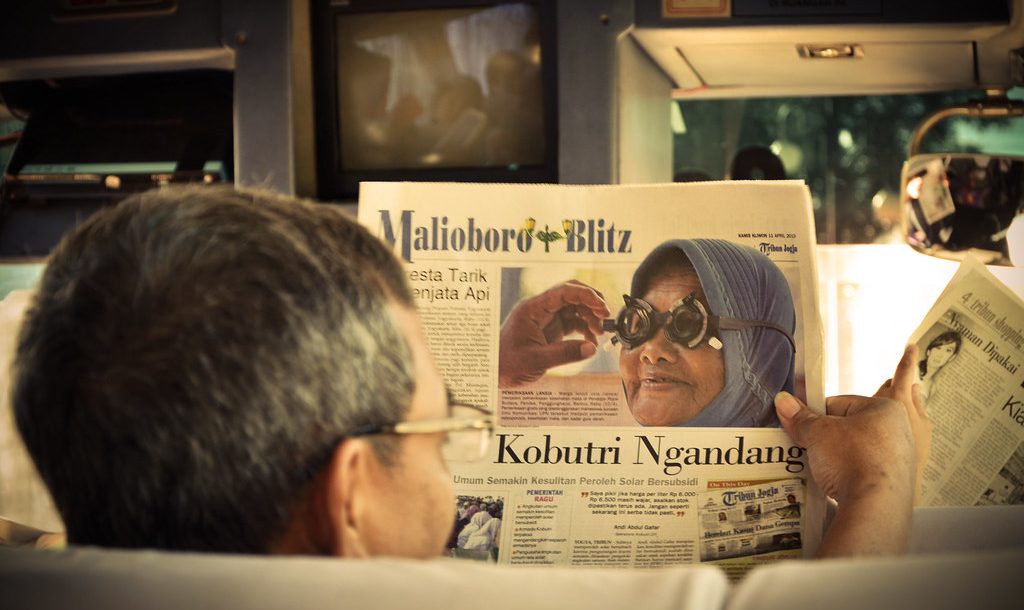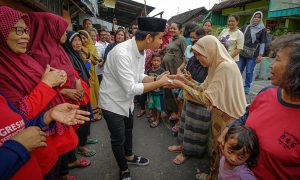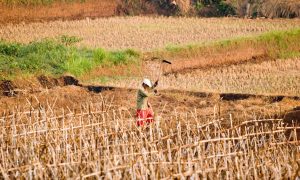COVID-19 pandemic has increased the thirst for local news among people across Indonesia’s vast archipelago since the first coronavirus case was announced in March. Just a few days after the announcement, television news viewership soared by over 25%, while between 25 April to 5 May local media’s traffics skyrocketed by up to 200%. These unprecedented news consumption rates, however, do not go hand in hand with local media’s role as regional watchdogs of post-Suharto decentralised Indonesia.
Indonesia’s local media thrived in the aftermath of Suharto’s New Order regime, and is growing fast in the digital era. Last year alone there were 47,000 online media outlets in Indonesia, a 5,000 strong boost on the previous year. There were also over 1,400 media companies registered with the Dewan Pers, Indonesia’s independent press organization, the majority of which are based outside of Jakarta. The numbers are most likely much higher now, given the fast-paced growth of the Indonesian media industry.
The massive development of Indonesia’s local media is supposed to offer a new hope for more critical, unpartisan reporting, which the majority of national “Jakarta” media fails to provide. Yet, that is not always the case. Some studies show that local media too are failing in supervising regional Indonesia, as many of them are overly reliant on governments’ PR budgets or local politicians’ fresh cash.
Now with the coronavirus wreaking havoc in all 34 of Indonesia’s provinces, the clientelist relationship has become more apparent. Local media revenue went down by 30-40%, as many advertising companies slowed spending due to financial hurdles caused by the pandemic. This resulted in local media building “follow the money” strategies just to keep afloat in the news industry. The bad news is that three out of five potential income sources, as mapped by a local radio’s firm commissioner, are state money: the village budget (Dana ADD), state budgets (APBN/APBD), and regional election funds.
Some local media associations and corporations have begun to seek or extend partnerships with regional governments and state institutions. In Papua, Blitar, Bali, Makassar, Jambi, and countless other places, authorities are approached by media personalities for cooperation in delivering pandemic news. Some governments remain silent on the offer, while others, like East Kalimantan’s Paser Regency, opt to set a range of requirements. One of the requirements is media must be willing to get their journalists to take a competency test held by the local government. In South Sumatra, a regency government promised not to cut its media publication budget to convince local media that the long-held ‘synergy’ is intact in spite of the pandemic.
All the test, the pre-requisites, and the pledges portray power relations between regional governments and local media. The former clearly has the capability to exert power on the latter. As a consequence, instead of criticizing and scrutinizing governments’ handling of the virus, many local media outlets serve as governments’ liaison with the public, uncritically reiterating authorities’ voices and COVID-19 data. This is not only counterproductive to the fourth estate function of the media, but also neglects the widespread COVID-19-related problems faced by Indonesians—minimal testing rates, lack of data transparency, misinformation, disinformation, insufficient contact tracing measures, and COVID-19 budget corruption, to name a few.
The impact is more evident on the controversial regional elections (Pilkada). The debate over potential dangers of the Pilkada amid a worsening pandemic is simply missing, and local media seem to already have a stance that the Pilkada should keep going for better or worse. A plethora of violations of health protocols during campaigns are not harshly condemned by local media, much less siding with the public to press the government to postpone the Pilkada. This lapdog attitude of local media appears in the midst of a rising number of public officials and regional politicians who are tested positive for or died to COVID-19.
Jambi, where clientelist relations between media, regional governments and political elites have been practiced and well-preserved for years provides, an additional insight into how local media’s problematic attitude fails their sacred role.
In late September, a pair of running candidates—an incumbent regent of Sarolangun and the wife and mother of two former Jambi governors—violated health protocols during a campaign in Jambi’s Bungo regency. The campaign was dispersed, yet the event was reported mildly by Jambi’s media. Some media even deemed the news a hoax, whereas others blindly defended the pair, despite national media’s confirmation.
This blind resistance is not a coincidence. Just one month before the campaign incident new officials of a Sarolangun’s journalist association were inaugurated at the Sarolangun regent’s office. In the same period, a Jambi press body paid a visit to the governor office, inviting the governor to attend the organisation’s annual meeting. The two events pronounced the same message: local media and governments need to have a consolidated partnership in conveying ‘positive news’ to the public.
The partnerships have indeed been fruitful, not least with regards to COVID-19 pandemic. A survey of 57 university students in Jambi reveals that more than 60% of the students consider the Jambi government’s performance in fighting the pandemic to be good, although over 70% of them admit that the pandemic situation in the province is currently at a critical stage. The same favorable rating goes for local media which receives more than 80% appreciation from student respondents.
The survey also shows that, while students read various local media, many of them obtain ‘news’ from social media, especially from pseudo-news Instagram accounts. These accounts frequently share screen captures of news covered by local media which enable the friendly reporting and framing to circulate farther. In addition, some such accounts offer paid promotion, receiving money from any pockets, including from running candidates.
This, of course, is not a complete picture of the adverse impact of local media’s problematic relations with local governments and political elites. Nevertheless, it offers a glimpse of how partnerships formed between the two entities have mutually benefited them, at the expense of the mass.
If anything, the coronavirus pandemic is detrimental to the local media’s watchdog role, despite the post-Suharto’s reformasi promise of a more democratic regional Indonesia.
 Facebook
Facebook  Twitter
Twitter  Soundcloud
Soundcloud  Youtube
Youtube  Rss
Rss 


